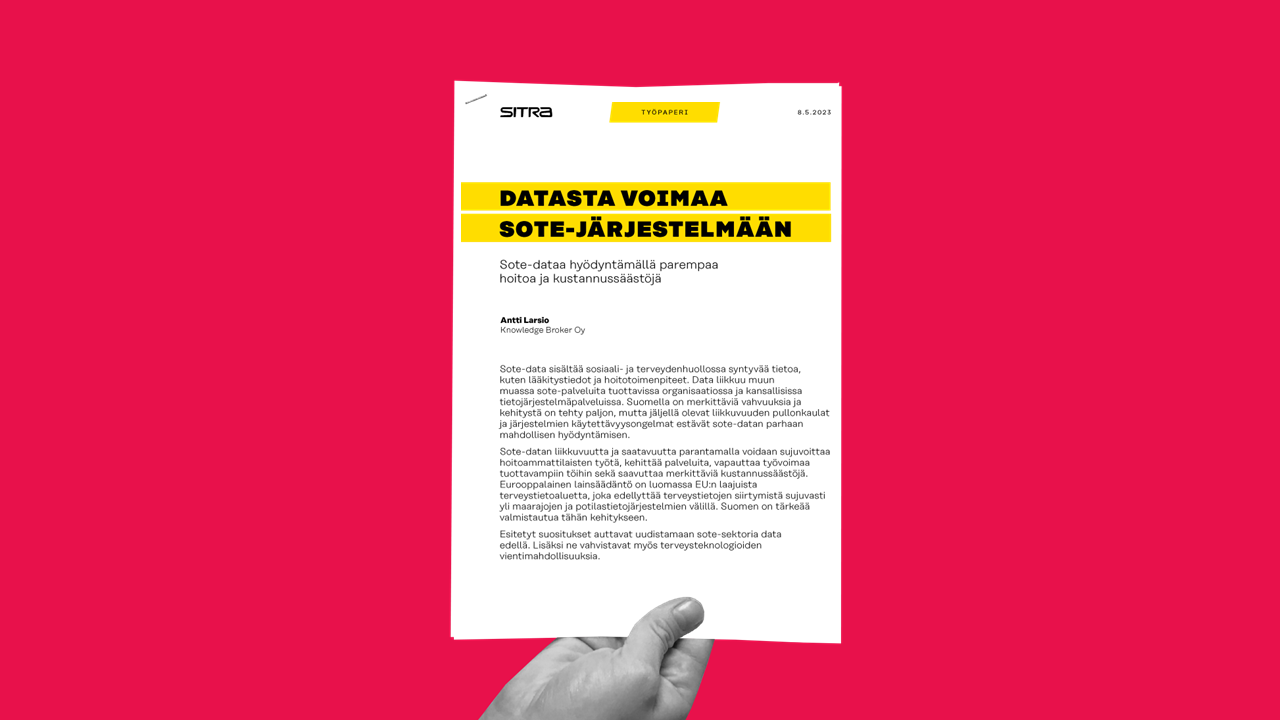Summary
Social welfare and healthcare generate abundant data. This includes health data, such as
patient, medication and treatment records, as well as data related to social services.
The use of social welfare and healthcare data plays an important role in improving the
effectiveness and quality of care or services and improving the efficiency and streamlining of social welfare and healthcare. The better use of data is key to achieving savings, improving work productivity and moving towards more personalised and preventive healthcare.
Social welfare and healthcare data flows mainly within the organisations of service providers, to some extent between different service providers and partially via national data system services. Some of this data does not flow in the best possible way.
The transmission of social welfare data and healthcare data is organised primarily with the aid of national data system services. The Finnish Social and Health Data Permit Authority (Findata) is responsible for the use of social welfare and healthcare data for research purposes. There are also a number of data system providers in Finland.
Bottlenecks in the use of social welfare and healthcare data include the availability of data in a timely manner and in the required format, technical incompatibility and legal constraints.
The European Commission has issued a proposal for a Regulation on the European Health Data Space, aimed at harmonising the way the European Union works with health data. The proposed regulation will impose obligations on Finland and on providers of electronic medical record systems, as well as new rights for individuals, for which we should be prepared.
The report proposes measures to improve the mobility of social welfare and healthcare
data:
- An individual’s access to real-time data about themselves should be facilitated.
- The principle of “collect and record easily once, use several times” should be introduced.
- The quality of social welfare and healthcare data should be improved.
- Individual-centric, international data models should be implemented.
- Legislation should enable the use of artificial intelligence and make it mandatory.
- The national steering model should be reformed.
- Funding should be directed towards implementing the recommendations.
It is estimated that implementing the recommendations would result in cost savings of EUR 770 a year for Finland. It could free up 5,000 nurses and 1,300 doctors for more effective use, ease the growing shortage of resources for health professionals and improve the impact of services.
